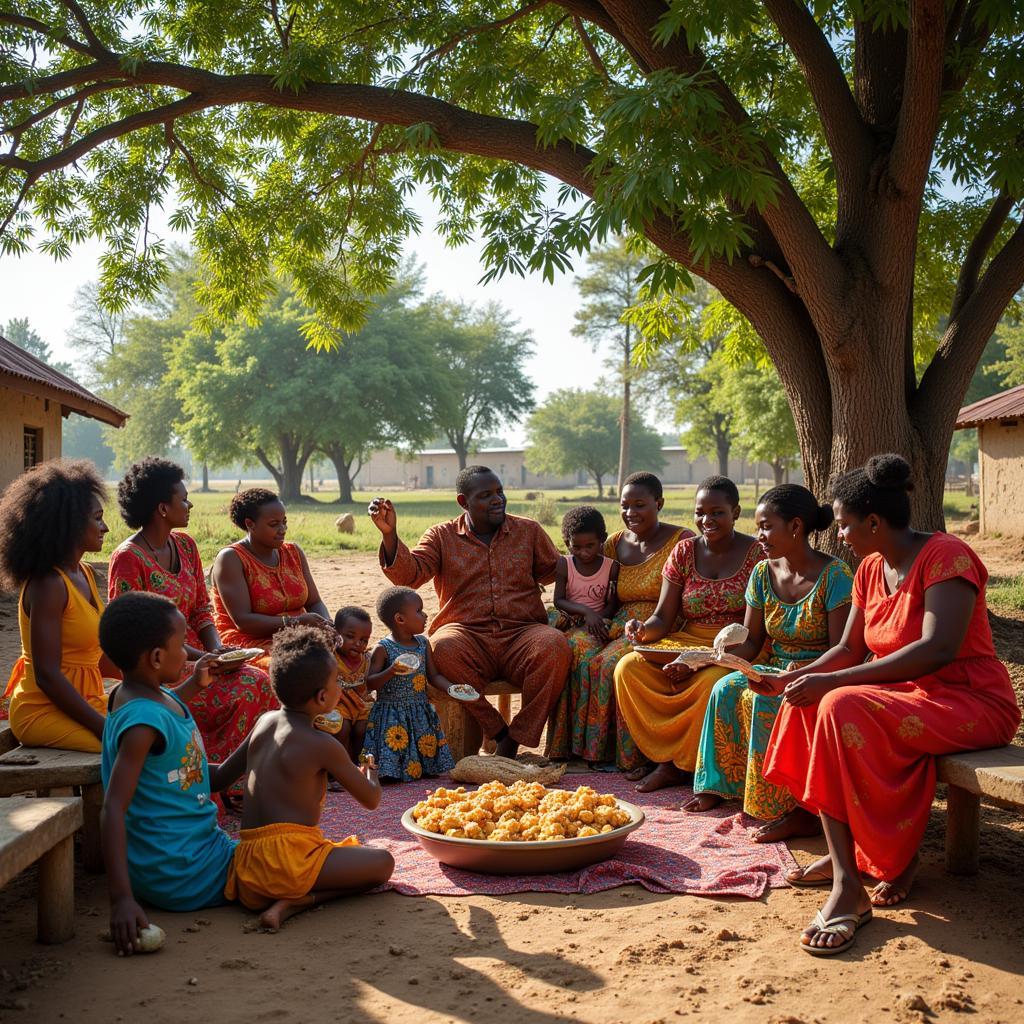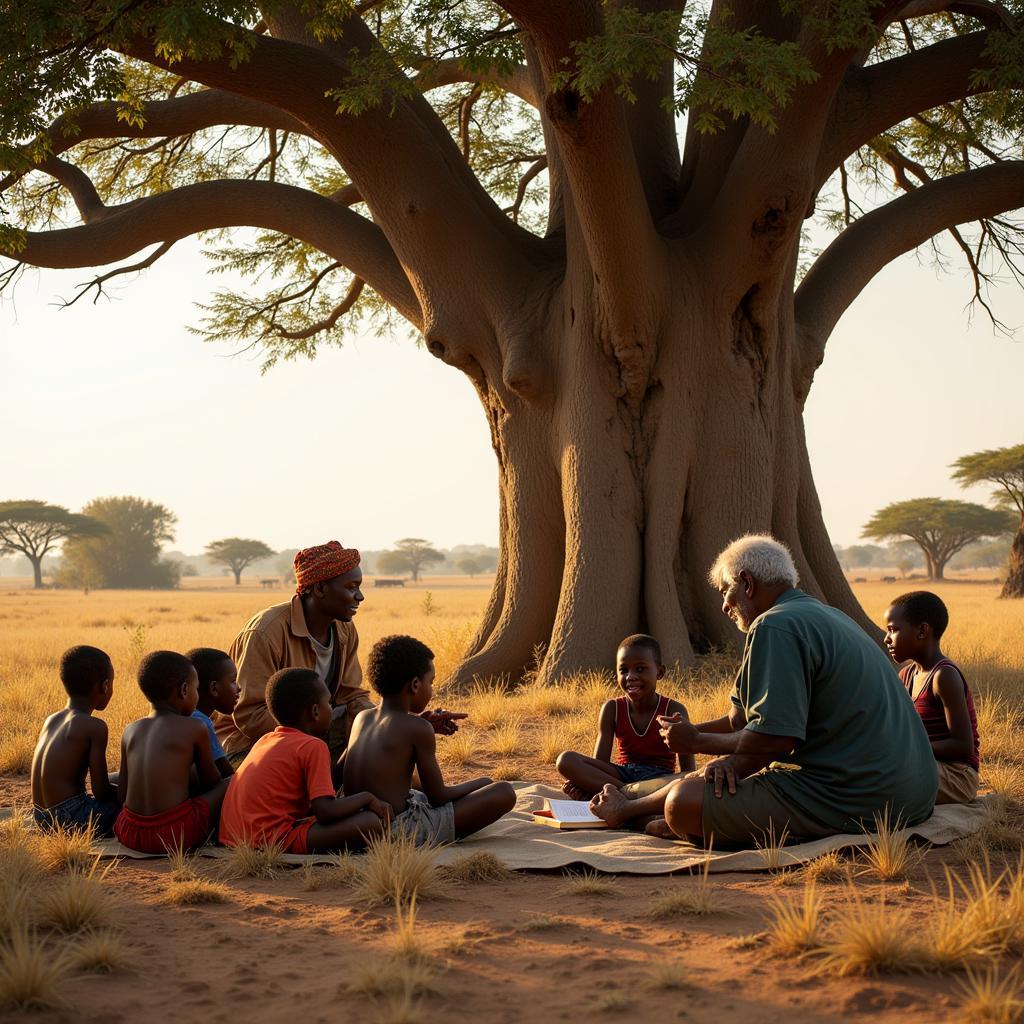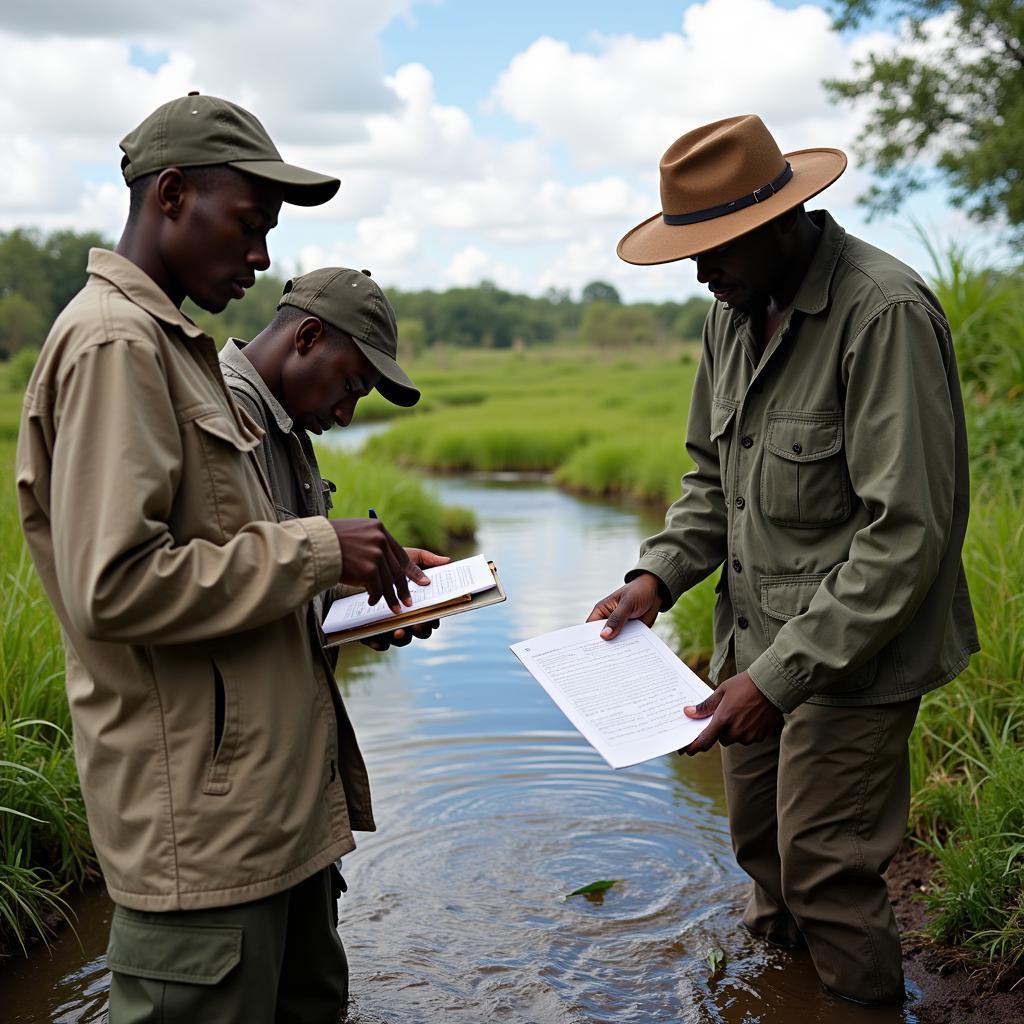Understanding the African Family: Structure, Values, and Traditions
The African family unit is the bedrock of society, rich in diverse cultures and traditions. Unlike the common perception of a nuclear family, the “african family” extends beyond immediate relatives to encompass a broader kinship system. This interconnected network plays a vital role in shaping individual identity, social values, and community life.
The Extended Family: A Cornerstone of African Culture
 A large African family gathering for a celebration
A large African family gathering for a celebration
In many African cultures, the family extends beyond the immediate parents and children. Grandparents, aunts, uncles, cousins, and even close friends are considered integral parts of the family structure. This extended family system provides a strong support network, offering assistance with childcare, financial aid, and emotional support during challenging times.
Traditional Family Values: Respect, Community, and Collective Responsibility
 Elders sharing stories with children in an African village
Elders sharing stories with children in an African village
Respect for elders is paramount in African families. Elders are revered for their wisdom, experience, and role as custodians of tradition. Children are taught to honor their parents, grandparents, and other authority figures. This deep-rooted respect extends beyond the family unit to encompass the wider community.
Collective responsibility is another core value. Individuals are expected to contribute to the well-being of the family and community as a whole. This fosters a sense of belonging, shared purpose, and mutual support among family members.
Marriage and Family Life: Diverse Customs and Traditions
Marriage customs in Africa are diverse and vary significantly across different ethnic groups and regions. While some cultures practice arranged marriages, others prioritize love marriages. Polygamy, historically practiced in some communities, is becoming less common today. Despite these variations, marriage remains a highly valued institution in most African cultures.
Modern Challenges and the Evolving African Family
Like families worldwide, the African family is adapting to modern challenges such as urbanization, globalization, and changing economic landscapes. These shifts have led to smaller family sizes, increased migration, and the adoption of new values and lifestyles. Despite these changes, the fundamental principles of respect, community, and strong family bonds continue to shape the lives of many Africans.
Conclusion
The “african family” is a complex and multifaceted tapestry woven with rich traditions, values, and evolving dynamics. Understanding its structure, values, and challenges provides valuable insight into the heart of African culture. Despite facing modern challenges, the African family remains resilient, adapting to change while preserving its core values of love, respect, and community.

